
The manufactured housing industry has traditionally been able to deliver a quality product to home buyers at an affordable price because of its unique system of factory-based production combined with its network of independent retailers and independent land-lease communities. This unique marketing and distribution structure has allowed the industry to prosper over the long-term, while serving and meeting the needs of American consumers of affordable housing. Today, though, the independent retailers and communities that are the core of this system and make it work, face serious challenges at the national level that are not being addressed and resolved effectively — and have not been addressed effectively for years.
Because the manufactured housing industry is comprehensively regulated by the federal government, all of its various segments and all of its members are impacted directly by decisions made in Washington, D.C. And, while all segments of the industry share certain common concerns at the national level, the specific interests, specific priorities and specific needs of all those segments in the nation’s capital, as shown by experience, are not necessarily identical. For 20 years, though, since the post-production sector’s last independent association, the National Manufactured Housing Federation, was merged into the Manufactured Housing Institute (MHI) to create an “umbrella group,” those specific interests and priorities have been swallowed by a dysfunctional process that has resulted in lowest-common-denominator positions and approaches to national-level issues that have not worked and have helped grease the skids for the industry’s prolonged decline. Even worse, as part of this process, the particular interests of smaller independent post-production businesses have been overwhelmed and pushed aside by the power and influence of a few large corporate conglomerates.
A key part of the solution, therefore, to halt the industry’s long-term decline and restore it to production levels in the hundreds of thousands of homes, where it should be, must be the re-establishment of a dedicated, national post-production sector organization to effectively represent the specific concerns and interests of independent retailers and communities in the nation‘s capital, while working cooperatively with a single, united national producers’ organization on matters of joint concern. And the sooner this happens, the better it will be for the entire industry.
As MHARR has pointed out before, the HUD Code industry is the only major industry in Washington, D.C. that keeps all of its different segments and interests under one umbrella organization. The real estate/site-built housing industry, the automobile industry, the recreational vehicle industry, the marine industry and a host of others in Washington, D.C., all have separate associations for their production and post-production sectors. The representation of these industries is organized along functional lines, recognizing that different sectors of the same industry, while united by certain over-arching concerns, have specific individual concerns that are best advanced by separate organizations that cooperate with each other as appropriate. In an age of ever-increasing specialization and growth in the role of the federal government, this is just common sense. By contrast, an “umbrella organization,” where different industry sectors, in the formulation of policy, are routinely expected to sacrifice their own interests to protect others, is a prescription for weakness, bureaucracy, ineffectiveness and failure, and lies at the root of the industry’s current sustained decline — particularly its problems with public and private financing.
For example, with an independent association for retailers and communities, the industry’s current crisis dealing with the SAFE Act and Dodd-Frank mandates most likely would not exist, because those mandates should — and undoubtedly would — have been addressed before they were signed into law. Instead, as has been acknowledged by various sources and confirmed by reports from Congress, the ball was dropped on this major post-production issue, and the industry is now scrambling against difficult odds to secure after-the-fact fixes, with the survival of its small businesses on the line.
It’s no different with Fannie Mae, Freddie Mac, Ginnie Mae or the Federal Housing Administration (FHA). An independent association of the nation’s retailers and community owners would not have let manufactured housing loans drop to a miniscule portion of the business of these agencies. It would have been on top of the failure of these agencies to properly and adequately serve the needs of American families who rely on affordable manufactured housing with strong, decisive positions and follow-up from day one. It would not have provided cover for manufactured housing detractors within the Government Sponsored Enterprises (GSEs) — who ran them into the ground purchasing risky sub-prime loans that people could not afford, while choking-off private financing for manufactured homes that people could afford. Nor would it have spent years on a “select” program that is so “select” it’s virtually useless, while allowing manufactured housing loans to shrink to less than 1% of the GSE’s portfolios.
None of this should be news to any of the nation’s hard-working independent retailers and community owners who are struggling just to survive while sending their hard-earned dollars to Washington, D.C. to fund national-level representation that, with little or no regard for smaller independent businesses, has presided over a shrinking industry, while a handful of larger corporate conglomerates have benefited.
A dedicated post-production association in Washington, D.C. would advance the specific interests of independent retailers and communities with strong, undiluted positions that would be more targeted, more focused and, therefore, more effective, while working hand-in-glove with a single, united, dedicated manufacturers’ association to promote, advance and protect the industry’s broader interests in Washington, D.C. But this will not happen until the nation’s retailers and community owners take the bull by the horns, exercise leadership, and demand change to resolve the fundamental structural problem that continues to handicap their representation — and the representation of the industry as a whole — in the nation’s capital.
In MHARR’s view, retailers and community-based entities face a clear choice — continued dysfunction and decline, or a change to a new national level industry representation structure to lead the industry back to real prosperity. # #
Manufactured Housing Association for Regulatory Reform (MHARR)
1331 Pennsylvania Ave N.W., Suite 508
Washington, D.C. 20004
Phone: 202/783-4087
Fax: 202/783-4075
Email: mharrdg@aol.com



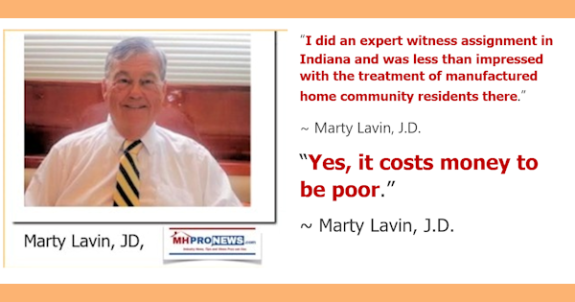
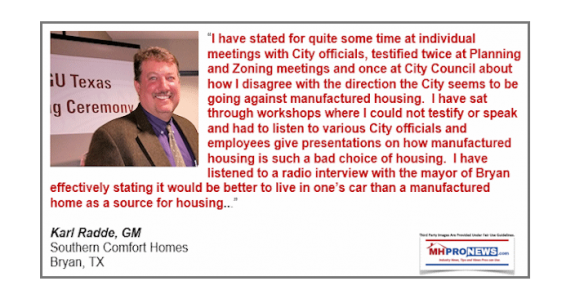
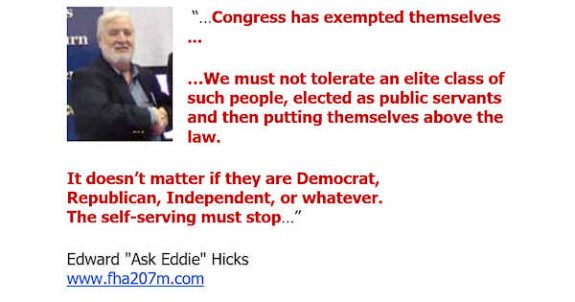
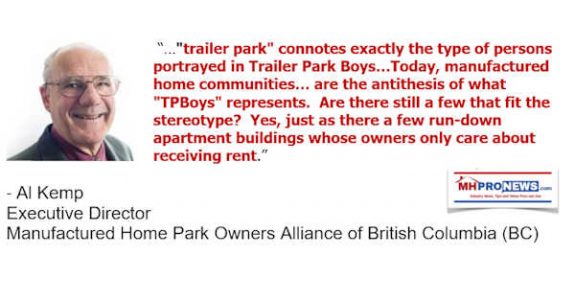

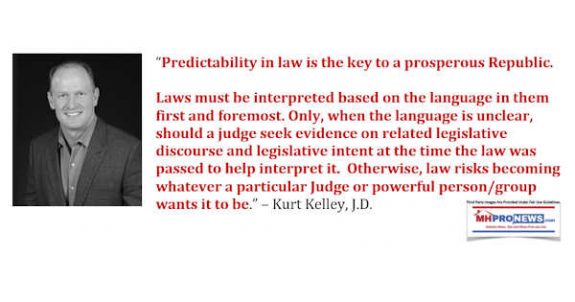
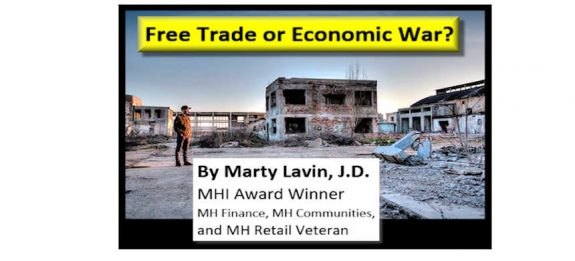
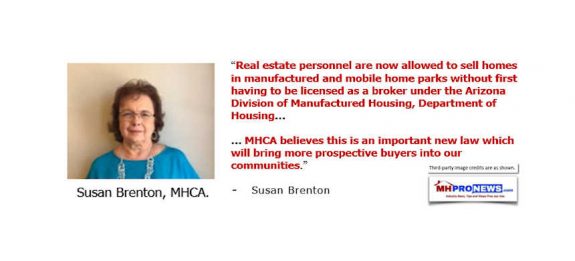
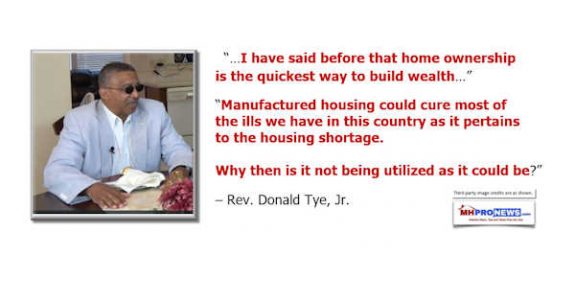
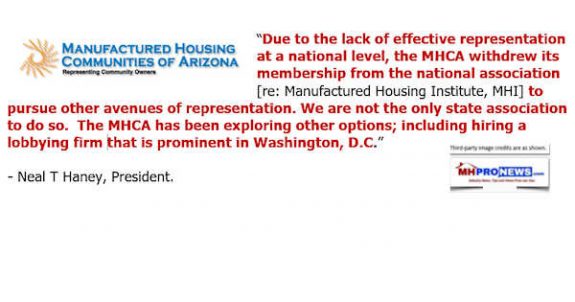
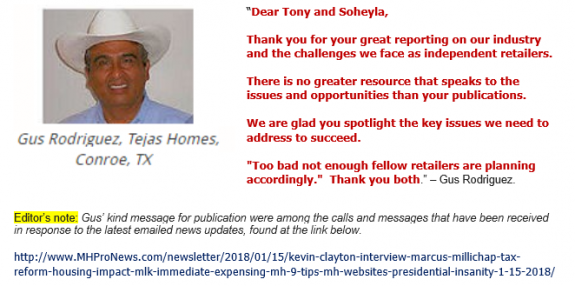
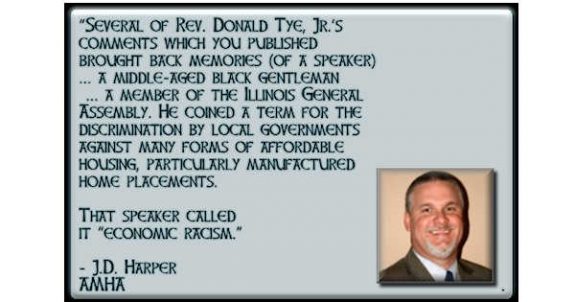
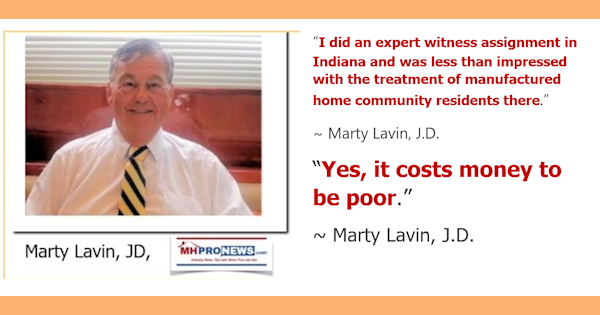
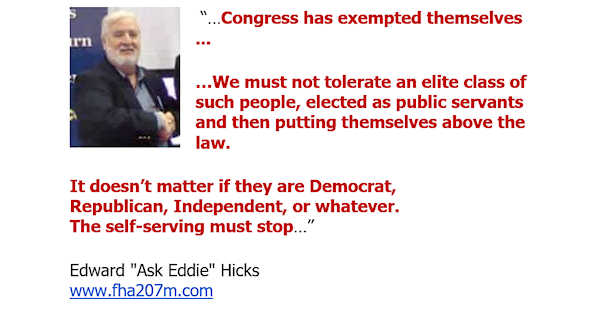
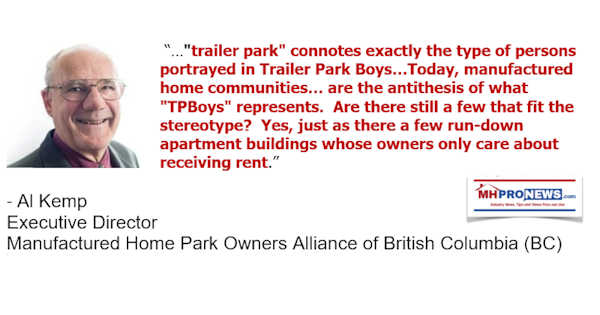
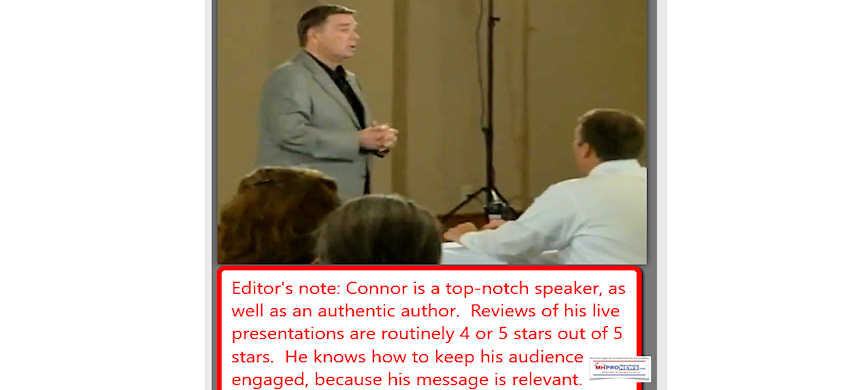
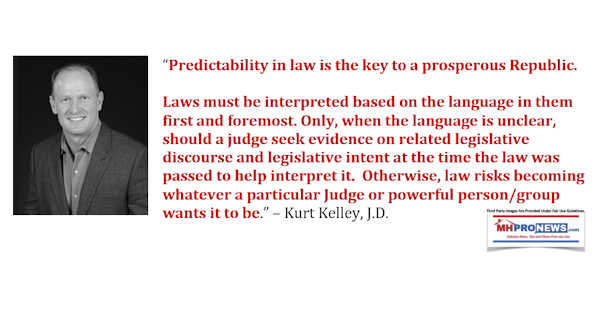
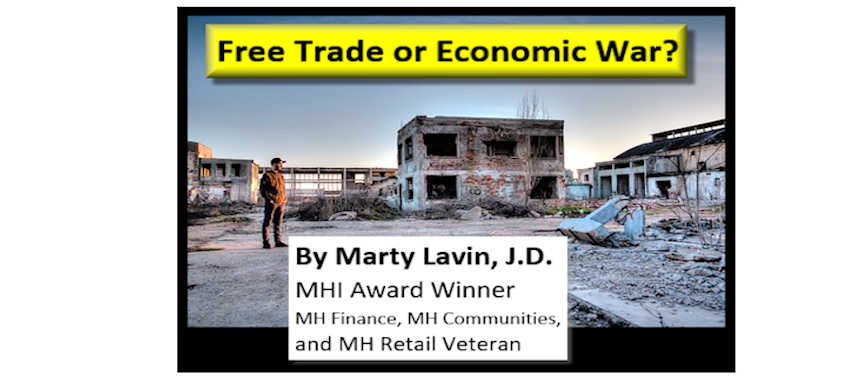
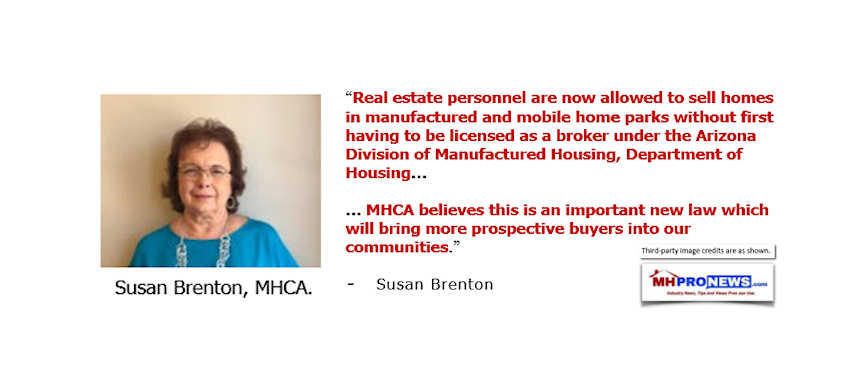
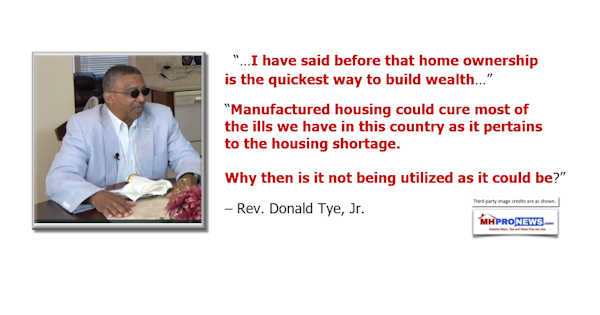
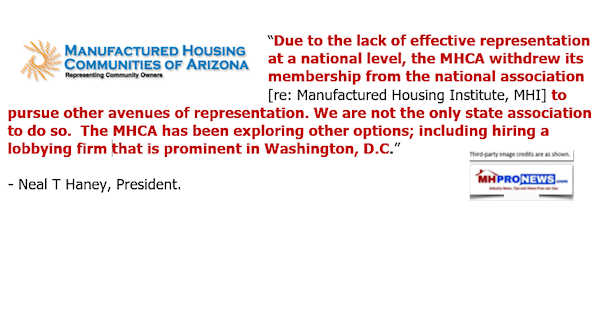
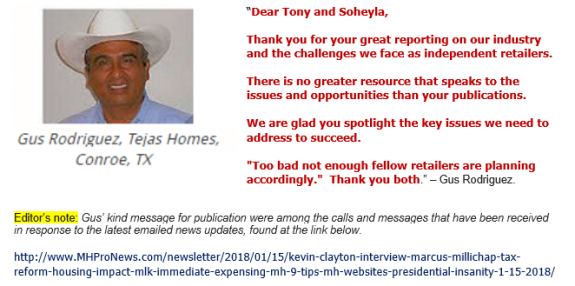
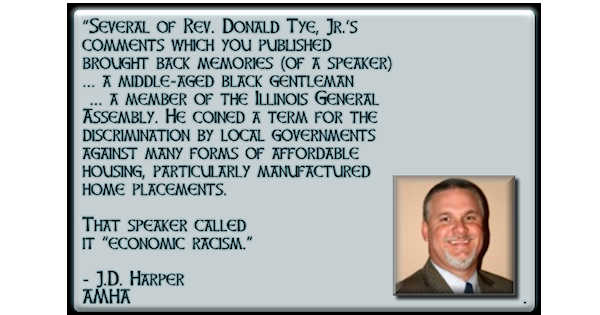
Karl Radde – TMHA, MHI, Southern Comfort Homes – Addressing Bryan City Leaders, Letter on Proposed Manufactured Home Ban
To All Concerned [Bryan City Officials, Others]: As the retail location referenced by Mr. Inderman, I would like to take a moment to address the …